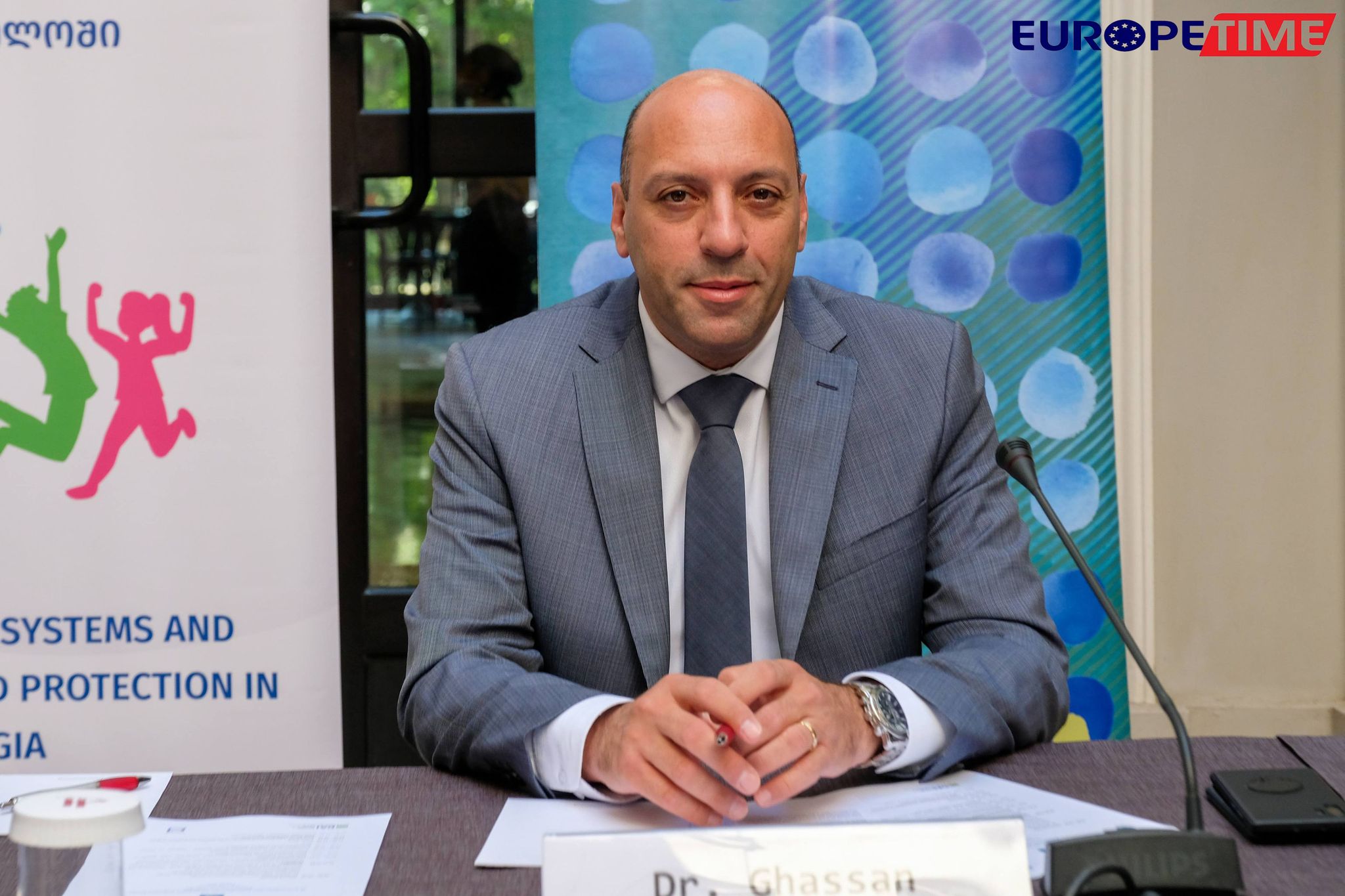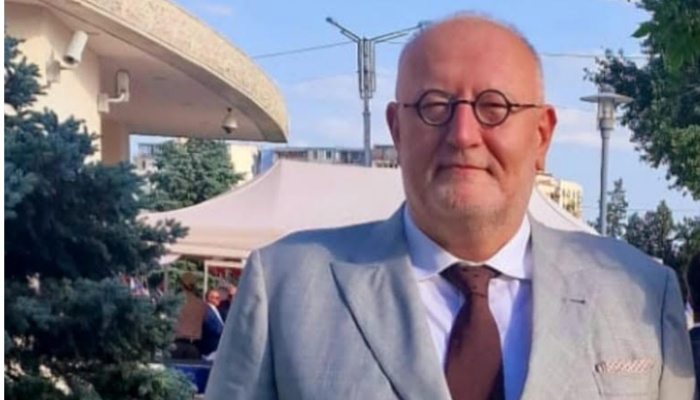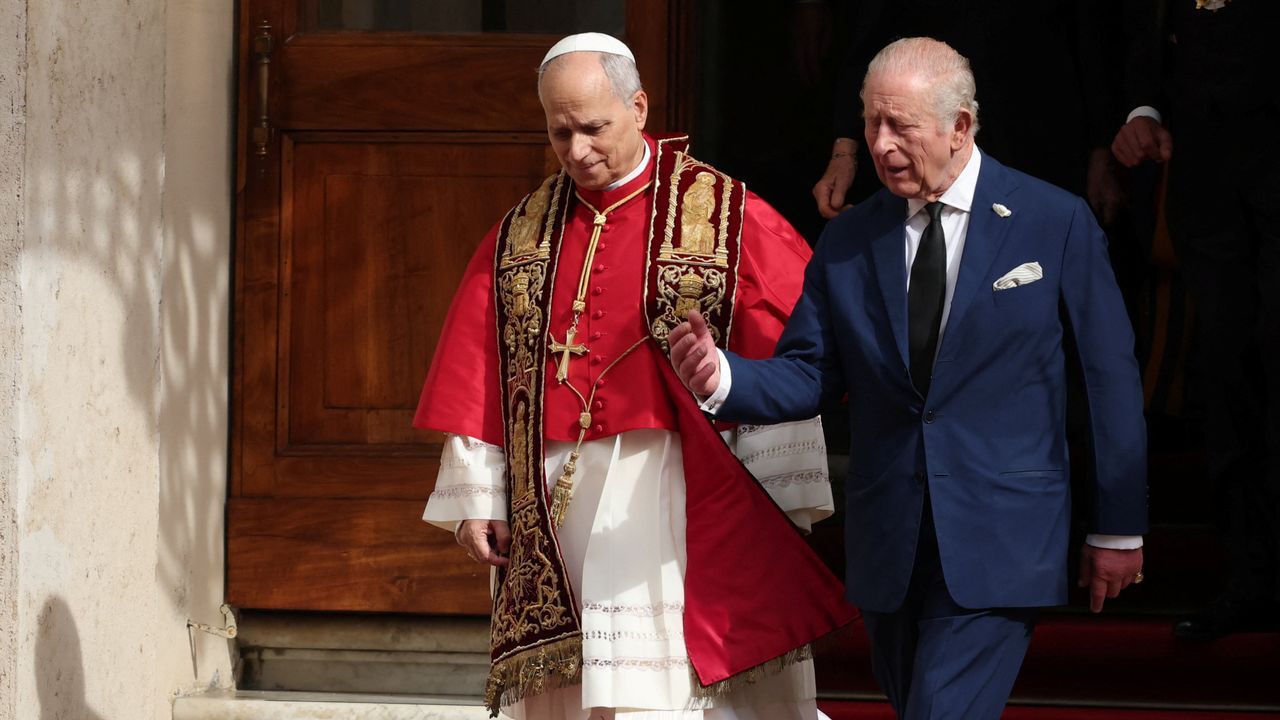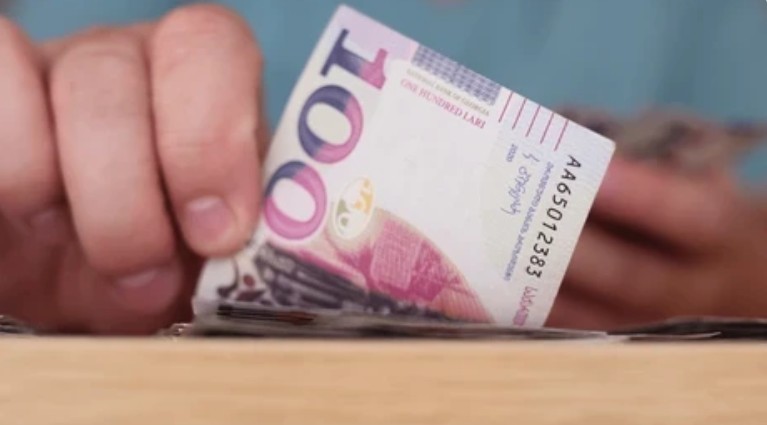`We stay committed to support the Government in the implementation of the vaccine deployment plan`, - Said in an exclusive interview with Europe Time Ghassan Khalil, UNICEF Representative in Georgia. He also stressed the importance of existing queries and providing correct information to debunk various myths and misinformation related to COVID-19 vaccination. With an infodemic, false claims circulate more easily, hampering public health responses, creating confusion, distrust, and causing harm to people’s lives:
_What would be UNICEF message on Child Protection Day in Georgia?
On Child Protection Day, UNICEF is urging the Government and businesses to provide greater investment and greater access to scale up tailored, holistic, and community-based parenting programs and services to support parents and caregivers, especially for the most vulnerable families.
Family support services are essential at any stage working with the family. The Code of the Rights of the Child puts an emphasis on the importance of family support services at the central as well as the municipal level. Strong family support services are required to ensure a family environment for every child and to avoid the separation of a child from a family. Social welfare staff at central and municipal levels are key for a quality social service.
Being a parent is the most important job in the world. COVID-19 and its socio-economic consequences have piled new forms of stress onto parents and exacerbated pre-existing vulnerabilities and adversity within families. As we move into the second year of the pandemic, parents and caregivers continue to struggle to keep children learning and their families functioning, often in the face of worsening poverty. Now more than ever, we need to reimagine the support we give to families and parents so that they have the time, resources, and services to give children the best start in life. In partnership with the European Union, we will be supporting parents and children in promoting positive parenting and having access to necessary services.
To emphasize the importance of positive parenting and family support services, UNICEF, in partnership with the European Union as part of their joint project ‘Strengthening Systems and Services for Child Protection in Georgia” is holding a “Parenting Week”. The campaign will engage parents, caregivers, professionals, and children and encourage them to start thinking about sound approaches to positive upbringing and protecting children’s rights, which can be achieved through positive communication and respect. This includes online webinars, in-person meetings, and social media campaigns.
_The risks of child involvement in labour have increased in the context of the Covid-19 pandemic, according to the report was prepared with the support of UNICEF. More specifically, what concerns this study unveils and how do you find out ways to sort out them?
The Convention on the Rights of the Child (CRC) recognizes every child’s right, “to be protected from economic exploitation and from performing any work that is likely to be hazardous or to interfere with the child’s education,” or that is likely to harm the child’s health or, “physical, mental, spiritual, moral or social development.”
Understanding the underlying causes of child labour and addressing their interconnectedness is the key premise behind the UNICEF prevention and response approach. Child labour is largely driven by vulnerabilities caused by poverty and deprivation. Progress to eliminate child labour is therefore closely linked to reducing these vulnerabilities, mitigating economic shocks, and providing families with social protection and an adequate level of regular income. UNICEF and other child protection actors are increasingly moving away from small-scale, issue-specific projects in favor of a systems approach, with a strong focus on prevention.
The systems approach facilitates more systematic policy development and programming that considers the child, family, and community as a whole. Better coordination of poverty reduction, social welfare, justice, labour, and education policies ensure cost-effectiveness and efficiency.
Last year, UNICEF supported the Public Defender’s Office in developing the Special Report On Child Labour During the New Coronavirus Pandemic and Beyond, which analyzed the pandemic’s impact on child labour, gaps in legislation, and problems identified in practice. The study found out that:
· It is a common practice in the regions to involve juveniles in household and seasonal work;
· Labour migration of juveniles is also a common practice in Georgia, including migration abroad where children perform heavy labour under inadequate conditions and for low payment;
· Children systematically miss or drop out of school due to their involvement in labour. The absence of students, or the reasons for the above, are not recorded in some instances. As a result, not all cases of child involvement in labour are recorded and thus remain un-responded.
· Public awareness of child labour rights and childrens’ protection from harmful forms of labour is low. Society is, in some cases, tolerant towards similar cases.
· Elimination of child labour on the street and the identification of the needs of children living and working on the streets remains a challenge due to a lack of resources and qualified personnel.
The study also provides specific recommendations. Georgia ratified the Convention on the Rights of the Child, and many other international instruments, which establish Government responsibility for protecting every child of hazardous labour.
The Code of the Rights of the Child of Georgia that came into force several months ago envisages child protection from harmful forms of labour and the development of specific mechanisms for the eradication of child labour on both national and municipal levels.
_UNICEF is supporting the Government of Georgia in procuring vaccines through the COVAX platform. How do you assess the vaccination process and what are the expectations in the direction of receive new doses?
UNICEF has been supporting the Government of Georgia in carrying out routine immunization programs and has also been ready to facilitate the communication with COVAX on COVID-19 vaccines upon the request of the Government.
UNICEF is part of the COVAX Facility, which aims at accelerating the development and manufacturing of COVID-19 vaccines, therapeutics, and diagnostics and guaranteeing that people in all corners of the world will get equitable access to COVID-19 vaccines once they are available, regardless of their wealth.
As the largest vaccine buyer in the world, procuring more than 2 billion doses annually for routine immunization and outbreak response on behalf of nearly 100 countries, UNICEF is coordinating and supporting the procurement, international freight, and in-country distribution of COVID-19 vaccines for the COVAX Facility. We are also building on years of experience in providing simple, effective, and accurate information to build public knowledge, awareness, and confidence in vaccines. We are working with partners to ensure that local communities are engaged in the overall vaccination process. For this, we are building on our support for immunization programs by working with health workers, religious leaders, teachers, and influencers to share the right information before, during, and after vaccination campaigns. Immediately after the Government requested UNICEF’s support, we started to work with the COVAX Facility to support the Government of Georgia in the procurement of COVID-19 vaccines and the process is still ongoing. We stay committed to supporting the Government in the implementation of the vaccine deployment plan.
_ UNICEF is actively involved in the awareness campaign in the regions, so what are the vision of the population with vaccination and in consideration of this and the vaccination process in general, do you think that vaccinating 60% by the end of the year is prospective?
Immunization is crucial in combating this pandemic, which is affecting every one of us. We need to understand that vaccination is the only way to get back to normalcy and to ensure children and their families regain access to education, health, and protective services, which have been severely disrupted. No one will be safe until everyone is safe.
UNICEF is supporting the National Center for Disease Control to implement the National COVID-19 Vaccine Deployment Strategy by reaching ethnic minority regions or various target groups to organize information sessions around the benefits of vaccination. We visited the Samtskhe-Javakheti region and Adjara AR where we had meetings with religious leaders of the Georgian Orthodox Church and the Armenian Apostolic Church, doctors, teachers, and local media representatives to learn about various aspects of the COVID-19 vaccination.
The sessions were led by prominent doctors and public health experts who responded to the questions of community representatives around vaccination. It is important to respond to all existing queries and to provide correct information to debunk various myths and misinformation related to COVID-19 vaccination. With an infodemic, false claims circulate more easily, hampering public health responses, creating confusion, distrust, and causing harm to people’s lives.
National governments, international organizations, civil society has tried to counter misinformation in multiple ways. However, the issue persists and is becoming increasingly challenging. That is why it is important to constantly engage with local communities to maintain a regular dialogue and provide correct information. That’s what we are doing while visiting various regions, including the ones populated by ethnic minorities. We try to be closer to various groups, listen to them more carefully to understand their concerns and respond to their queries. The Government of Georgia is implementing the National Vaccine Deployment program and let’s hope that the Government can reach its goals regarding the vaccination.








